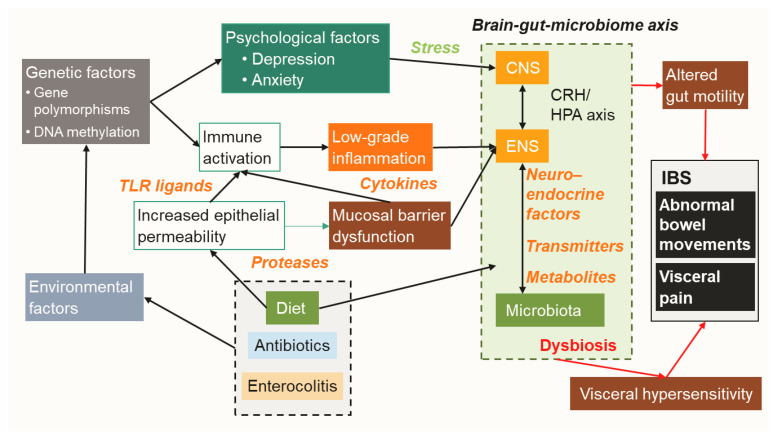Figure 1.
Overview of pathogenesis related to IBS. IBS is a multifactorial disorder affected by various genetic and environmental factors. Altered diet, aberrant usage of antibiotics, or exposure to severe enterocolitis induce gut dysbiosis, resulting in mucosal immune activation and low-grade inflammation, as well as gut barrier dysfunction through increased epithelial permeability. These pathways along with psychological factors influence the brain-gut-microbiome axis, which is mediated by aberrant neuroendocrine factors, transmitters, and metabolites, resulting in altered gut motility and visceral hypersensitivity. Chronic status of such gut dysfunctions shapes IBS symptoms including abnormal bowel movements and visceral pain. TLR, Toll-like receptor; CRH/HPA, corticotropin-releasing hormone/hypothalamic-pituitary-adrenal axis; ENS, enteric nervous system; CNS, central nervous system.

